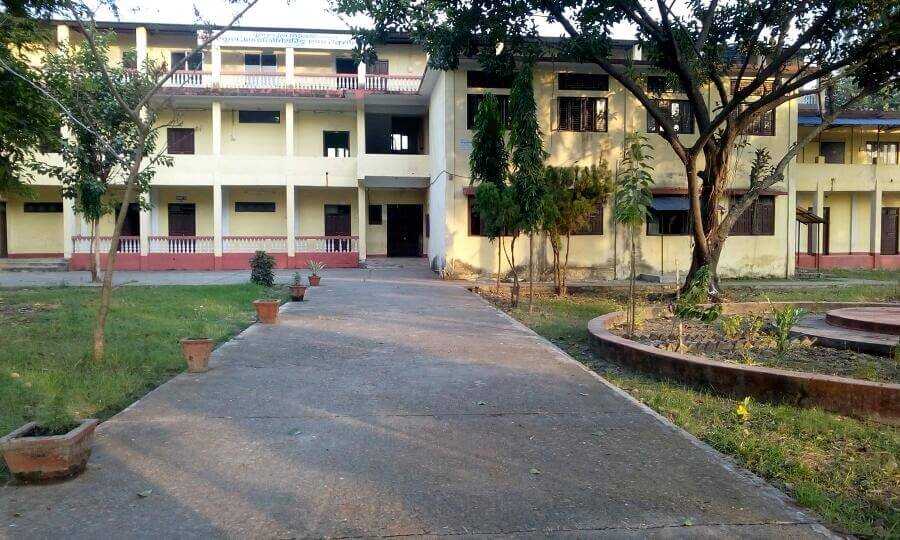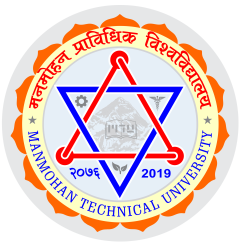Overview
Bachelor of Engineering in Civil Engineering at PUSOE
The Bachelor of Engineering (BE) program in Civil Engineering at Purbanchal University School of Engineering (PUSOE), Biratnagar, Nepal, is an undergraduate course that provides a complete understanding of the principles and practices of civil engineering.
This program, affiliated with Purbanchal University (PU), covers various topics, including structural engineering, geotechnical engineering, transportation engineering, water resources engineering, and environmental engineering.
This program is planned to prepare graduates for careers in the planning, design, construction, and maintenance of infrastructure systems. The curriculum is made to meet the increasing need for qualified civil engineers in Nepal and globally.

Curriculum Details
The BE in Civil Engineering curriculum at PUSOE is structured to provide a thorough foundation in civil engineering principles while offering opportunities for specialization through elective courses.
The program consists of theoretical knowledge with practical skills, using hands-on experience in labs and field settings. It also includes core courses, elective choices, and project work to ensure a well-rounded education.
Core Courses
These courses cover the fundamental areas of civil engineering:
-
Engineering Mechanics: The course introduces the basic principles of statics and dynamics and their application in structural analysis.
-
Surveying: Students learn about the principles and methods of surveying, including surveying instruments.
-
Fluid Mechanics: The course covers the principles of fluid flow, including fluid properties, fluid statics, and fluid dynamics.
-
Structural Analysis: Students learn different techniques for analyzing structures, including beams, trusses, and frames.
-
Geotechnical Engineering: The course introduces soil mechanics, properties, and foundation design.
-
Transportation Engineering: Students learn about planning, designing, and managing transportation systems, including roads and highways.
-
Environmental Engineering: This covers basic environmental concepts and their role in the sustainability of infrastructures.
-
Water Resources Engineering: This course examines various aspects of water resource management, including hydrology, hydraulics, and water distribution.
Elective Courses
Students can select electives from specialized areas to focus on specific areas of civil engineering. Some of the common elective regions include:
-
Advanced Structural Design: The course covers the design of complex structures like bridges and high-rise buildings.
-
Construction Management: Students learn about construction projects' methods, techniques, and management principles.
-
Highway Engineering: Designing and planning roads, highways, and pavement structures.
-
Hydraulic Engineering: Analyzing and designing hydraulic structures such as dams and canals.
-
Environmental Impact Assessment: This includes assessing and minimizing the environmental impact of construction projects.
-
Earthquake Engineering: Principles of seismic design, retrofitting, and rehabilitation.
Objectives
The main objectives of the BE in Civil Engineering program are:
-
To give students a thorough knowledge base of the principles and practices of civil engineering.
-
To prepare graduates to use engineering techniques and modern software to address real-world problems.
-
To improve the skills of students to design, plan, build, and manage infrastructure systems.
-
To encourage students to follow ethical and professional practices.
-
Ensure the students have the knowledge and essential skills for a prosperous professional career.
Scope
The program's scope is broad, covering various industries and job roles. Graduates of this program can look for opportunities in different areas of the sector:
-
Construction companies in site management, project management, or construction engineering.
-
Consulting firms specializing in structural design, geotechnical investigations, or transportation planning.
-
Government agencies are involved in infrastructure development and public works.
-
Real estate firms are involved in project development and property management.
-
Transportation agencies are responsible for planning, designing, and maintaining transport infrastructure.
-
Environmental agencies manage water resources and environmental protection.
-
Research and development organizations specializing in civil engineering.
Learning Outcomes
Upon successful completion of the BE in Civil Engineering program, students should be able to:
-
Analyze and understand the principles of mechanics, fluid mechanics, and structural analysis.
-
Design and plan different types of infrastructure, such as buildings, bridges, roads, and water systems.
-
Apply different surveying methods and use instruments for construction projects.
-
Assess soil properties and do foundation design for various types of structures.
-
Planned and handled construction projects and ensured they met quality and safety requirements.
-
Use various engineering software for analysis, simulation, and design purposes.
-
Communicate complex engineering information both in writing and orally.
Skill Development Modules
The program includes various skill development modules to improve both technical and soft skills:
-
AutoCAD and Civil 3D: Software training for drafting and modeling.
-
Structural Analysis Software: Proficiency in software like SAP2000 and ETABS.
-
Geotechnical Software: Training in using software for soil analysis and foundation design.
-
Surveying Instruments: Hands-on practice using modern surveying equipment.
-
Laboratory Techniques: Training on the testing of construction materials.
-
Project Management: Skills for planning, managing, and executing civil engineering projects.
-
Report Writing and Presentation Skills: Skills to prepare and present technical reports.
Teaching Methodology
The teaching methods at PUSOE are focused on creating an effective learning environment:
-
Lectures: Formal instruction by experienced faculty to present core concepts and theories.
-
Tutorials: Problem-solving sessions to address student questions and reinforce understanding.
-
Lab Sessions: Hands-on practical sessions in labs using modern equipment.
-
Field Visits: Visits to construction sites and field locations for observation and analysis.
-
Project Work: Individual and group projects to apply the knowledge gained to real-world problems.
-
Seminars: Guest lectures and workshops from industry experts and professionals.
-
Case Studies: Analysis of real-world civil engineering projects and situations.
Faculty Expertise
The faculty members at PUSOE have experience in civil engineering, and they combine academic knowledge with practical experience to enrich their students' learning. The faculty also contributes to research and ensures their teachings are current. The faculty comprises professors and assistant professors with advanced degrees from recognized universities, guaranteeing students excellent guidance and mentorship. The faculty are dedicated to helping students succeed and offer personalized support when required.
Admission Requirements
To be considered for admission to the BE in Civil Engineering program at PUSOE, applicants must:
-
Have completed 10+2 in the Science stream or its equivalent, with Mathematics, Physics, Chemistry, and English as main subjects.
-
Must have completed the qualifying examination with a minimum aggregate of 45%.
-
Meet any other admission requirements specified by Purbanchal University and PUSOE.
Career Opportunities
Graduates of the BE in Civil Engineering program will have several different career opportunities. The skills and knowledge pursued from this program will make them suitable for various positions in various sectors. Some potential job options include:
-
Civil Engineer
-
Structural Engineer
-
Geotechnical Engineer
-
Transportation Engineer
-
Water Resources Engineer
-
Environmental Engineer
-
Construction Manager
-
Project Manager
-
Site Engineer
-
Consultant
Student Life and Extracurricular Activities
Student life at PUSOE is focused on academics and personal development. The college encourages students to participate in various extracurricular activities, which helps create a well-rounded experience for personal and professional growth.
Students can participate in sports, cultural events, and technical clubs. These activities help build a sense of community and help students develop their skills.
Scholarships and Financial Aid
PUSOE offers several scholarships and financial aid programs to support qualified students. These programs are planned to make higher education accessible to students from diverse backgrounds.
The university's website details the available scholarships, eligibility criteria, and application process. These options help students financially, reducing the financial challenges of education.
Why Choose This Course?
The BE in Civil Engineering program at PUSOE provides a comprehensive learning experience. It combines a solid theoretical base with practical training and prepares students for various job roles in the civil engineering sector.
PUSOE has ties with several industries, allowing students to gain practical experience. Those seeking a solid base in civil engineering will find this program beneficial.
Why Choose This College?
PUSOE provides a positive and encouraging learning environment, with modern facilities and a faculty dedicated to its students' success. Students at PUSOE gain access to the resources they need to succeed in engineering.
The school emphasizes research, innovation, and the delivery of quality education. PUSOE is also known for producing well-qualified professionals who are leaders in their field.
Conclusion
The BE in Civil Engineering program at PUSOE is an excellent choice for students pursuing a career in civil engineering. The program is designed to meet industry needs by providing students with the knowledge and practical skills required for different job roles. By focusing on the quality of teaching, practical experience, and professional ethics, PUSOE ensures that its graduates are ready to contribute effectively to civil engineering.















